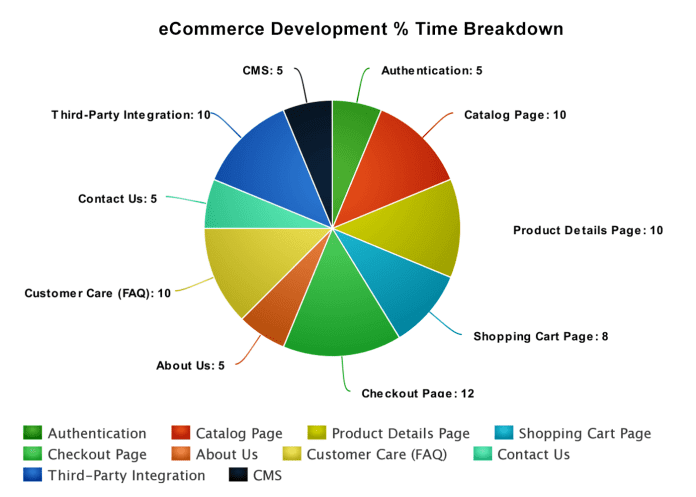Last Updated on July 11, 2024 by Asfa Rasheed
E-commerce sites are an essential part of today’s business landscape. They allow you to sell products, services and information directly to your customers without relying on third-party vendors or physical stores. This article will give you an overview of the factors determining how much it costs to build an e-commerce site and the options available in your ecommerce design website.
Table of Contents
How Do You Calculate Ecommerce Costs?
Before you can understand how much it costs to build an e-commerce store, you need to know what factors go into the equation. There are many ways to do this, but here is a basic breakdown:
Infrastructure Costs
Infrastructure costs are the hardware and software components that run your e-commerce store. This includes
1. Ecommerce software costs.
You’ll need to purchase a platform that supports your e-commerce store. This could be a full-blown, enterprise-grade eCommerce solution like Magento or Shopify or something more basic like BigCommerce or Volusion.
2. Domain name costs.
Domain names are the address of your e-commerce store. You can purchase them from a domain registrar and often include one year of registration at no additional cost.
3. Ecommerce hosting.
Hosting is the service that allows your e-commerce website to be accessible on the internet. It includes server space and bandwidth, plus security and backup services.
4. SSL certificate costs.
SSL certificates secure your website’s transactions and provide a trusted environment for customers. They ensure that information is encrypted and cannot be intercepted during checkout.
5. Payment processing costs.
Payment processing is the service that allows your customers to pay for their goods with a credit card, debit card, PayPal account or other payment methods.
Design Costs
The design of your e-commerce website is one of the most essential factors in its success. A good e-commerce website design will help you sell more products, but a poor design won’t. Design costs include:
1. Store theme and design costs.
The store theme should be consistent with your brand identity and can help promote the image you want your customers to see.
2. Add-on, plugin, and extension costs.
The most popular e-commerce website builders include various features and add-ons, which you can purchase as part of their packages or separately. These include payment gateways, social media integrations, shipping plugins and extensions allowing users to customize their store.
How much does it Cost to Have Someone Build an Ecommerce Site?
Building an e-commerce site can be a complicated and time-consuming process. As a result, many business owners opt to hire an expert to help them get their stores up and running as quickly as possible.
The costs associated with hiring an ecommerce website designing company or freelancer will vary depending on the complexity of your store’s needs and what you want it to look like. If you need help with design, development and marketing, the ecommerce web design company will also include these costs in the quote you receive from your provider.
Ongoing Ecommerce Costs to Consider
It’s not just the initial costs that you need to consider when building an e-commerce store. There are also several ongoing expenses that you will have to pay, including:
1. Data backup costs
It’s essential to have regular backups of all your data. If something happens to your e-commerce store and it crashes, then you’ll want to be able to restore as much of your data as possible.
This is especially true if there are products for sale on your site; if your customers made any orders when there was no backup available, then you won’t be able to deliver these orders.
2. Inventory management costs
Inventory management is one of the biggest costs associated with running an e-commerce store. You will need to keep track of all your products, as well as how many units you have in stock and how much they cost. This also includes managing any discounts or special offers that you want to run on your site.
3. Security costs
You must ensure that your site is secure, preventing hackers from gaining access and tampering with your data. You also need to ensure that your store complies with all applicable laws and regulations regarding online sales.
4. Marketing costs
Marketing is one of the most critical factors for any business, and it’s no different for e-commerce retailers. You will need to invest time and money into marketing campaigns that drive traffic to your website and social media advertising to increase brand awareness.
Conclusion:
When it comes to the cost of starting an e-commerce business, there are many factors that you need to consider. Setting up your online shop can be pretty expensive from the initial setup and ongoing costs. However, with the proper guidance and knowledge of what to expect from each expense, you can manage your finances better and avoid losing money on your startup venture.
Apart from this, if you are interested to know about Tips to Help Improve Sales for Your E-Commerce Business then visit our Digital Marketing category.



























